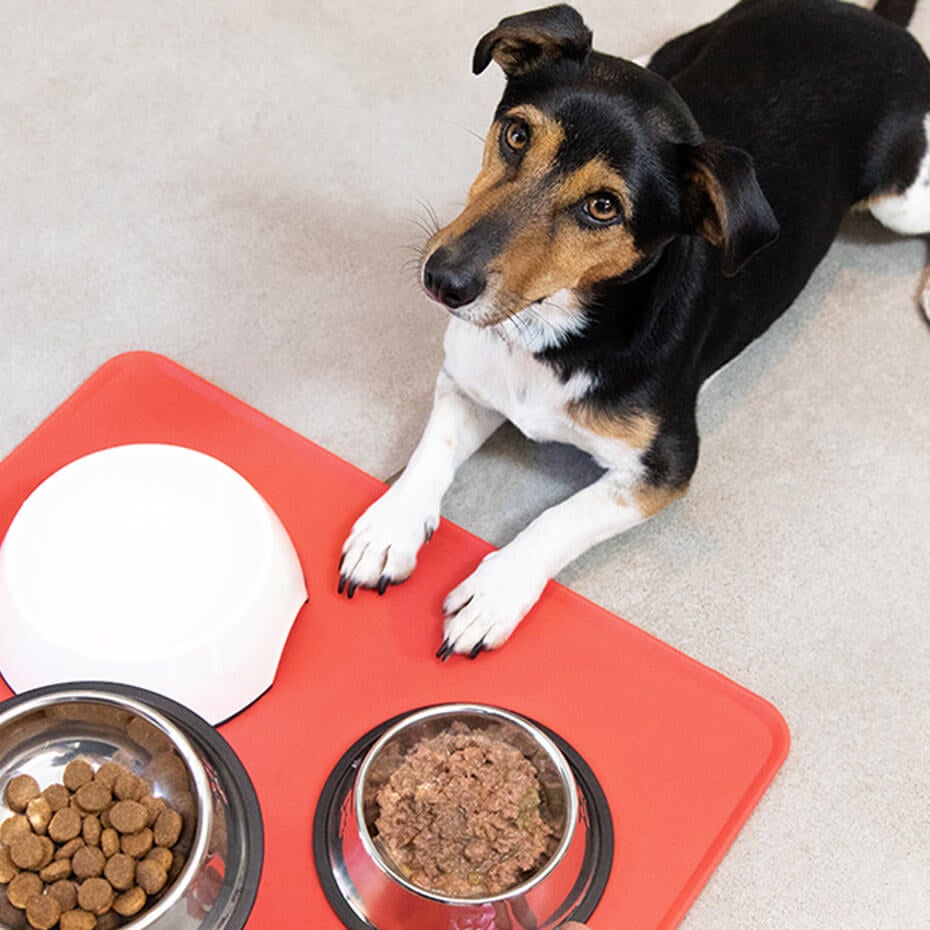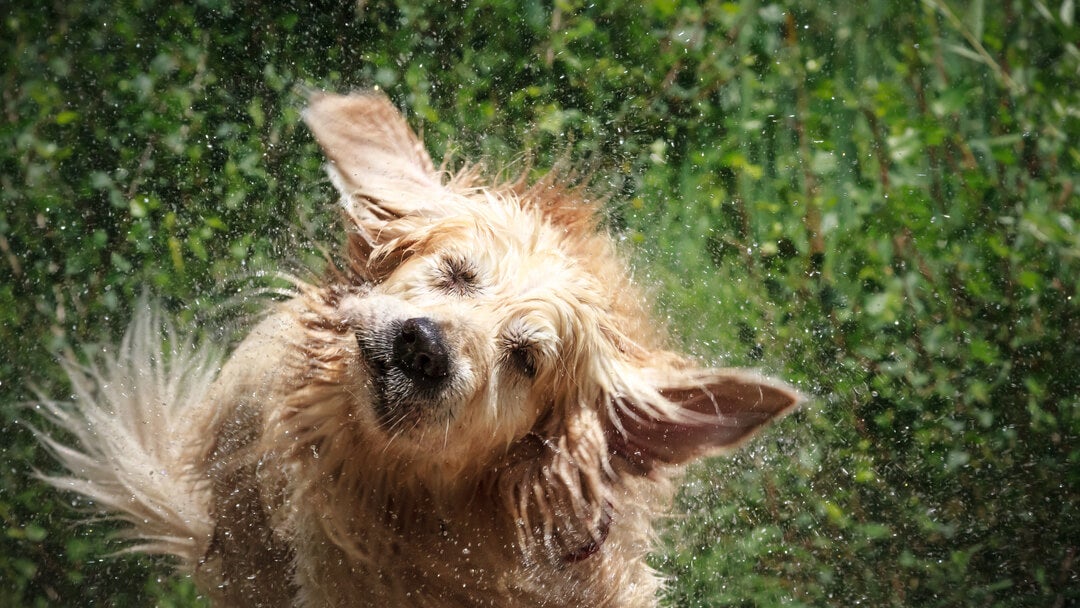
The image of a dog chasing their tail is one that’s been depicted time and time again, but have you ever stopped to wonder why they do it? Find out why do dogs chase their tails with our guide.
If you’re a dog owner, you’ve probably witnessed your pup chasing their tail on occasion. Sometimes it may be just the odd, quick chase and other times your dog may resemble a tornado, whirling around and around in hot pursuit of their tail. When it’s only occasional and doesn’t seem to be doing your dog any harm, it’s usually harmless behaviour. However, if the tail chasing appears to be obsessive then there could be a health issue.
For those that are wondering why do dogs chase their tails, we’ve put together this guide to tell you the most common reasons and when you should seek help from your vet.
Why do dogs chase their tails?
There are numerous reasons why your dog may chase their tail, from boredom to something more serious like an injury. It’s always best to consult a vet first to rule out anything health wise, but six of the most common reasons why they exhibit this behaviour are as follows:
1. Boredom
Sometimes dogs chase their tail simply because of boredom. This may be because they’re left alone most of the day or aren’t getting enough mental or physical stimulation. Tail chasing offers a way to entertain themselves – at least for a little while – and also allows them to expel some of that built up energy. Luckily, if the chasing is due to boredom, it’s easy to fix. Increase their daily activity by adding more regular walks to their routine and bring in some physical and mental games. Every dog is powerless to resist a game of fetch and brain puzzles are an excellent way to engage their mind!
2. Puppy playfulness
Much like with human children, puppies love to discover more about their world with their mouths. So, a possible answer to why dogs chase their tails could be simply because they’re a puppy!
As they grow, they learn new things about themselves and discover their anatomy in a sense. Also, puppies are incredibly playful so they may just see their tail as a fun toy to chase but don’t worry, they’ll likely grow out of this behaviour.
3. Fleas and ticks
Another possible reason behind why dogs chase their tails may be because of fleas or ticks. Sometimes their tail can become really itchy as a result of an infestation and they might chase their tail to try and bite it and relieve some of the itching. If you think the behaviour may be due to fleas and ticks, check their skin for evidence – you may notice small, dark brown to black specks in their coat (flea faeces) and in some cases, there may be bald patches too as a result of excessive licking or scratching.
4. Attention seeking
Your dog’s tail chasing may be because of attention seeking. If they feel like they’re not getting enough attention from you, most dogs will pull out all the stops to try and get a reaction from you, which may include behaviours such as tail chasing.
To your dog, any press is good press so even if you reprimand them, they’ll see this as a win because they’re getting a response from you. It’s important to ensure you’re setting aside time out of each day to spend time with your dog; our four-legged friends are sociable creatures and need plenty of attention!
5. Medical conditions
According to Dr. Weinberg DVM, if your dog appears to be obsessively chasing their tail it could be due to an underlying health condition, such as seizures, pain, an infection or even cancer. If your dog is chasing their tail a lot, it’s best to rule out any medical issues first, so always get in touch with your vet who will be able to examine them and find the root of the problem.
6. Anxiety
Tail chasing can be a symptom of anxiety. Repetitive behaviours such as this can be a source of comfort for dogs and if it’s served as a stress reliever once, they may begin to do it whenever they feel nervous. Fetch by WebMD suggests that some typical causes of anxiety in dogs can be:
- Small living areas (such as a kennel or a crate).
- Aggression from another pet.
- Lack of opportunities to socialise.
- Previous frightening experiences.
- Physical or emotional abuse in the home.
Dogs that have experienced the things listed above are far more likely to develop coping compulsions. If you suspect your dog’s tail chasing may be a result of an anxiety related compulsion, you should contact a behaviourist who can advise on how best to help your pup.
Now you know the possible reasons behind why do dogs chase their tails! Want to find out more about your dog’s behaviour? Learn why dogs lick things next!

















